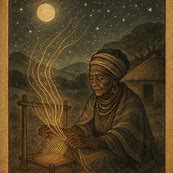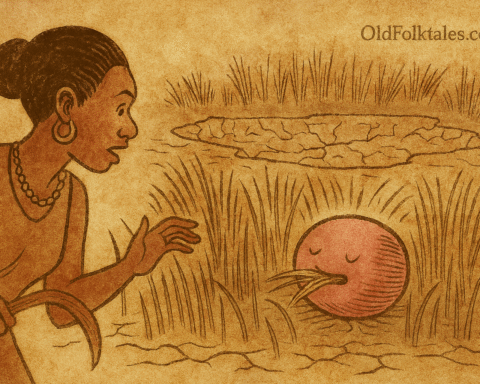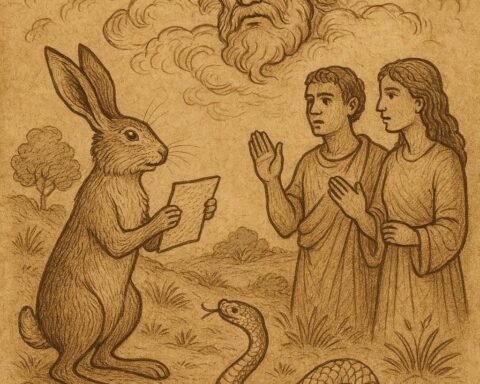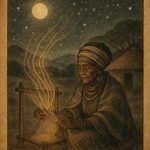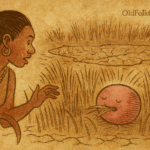In the beginning, when the earth was still young and the ways of the people were not yet settled, Nhialic, the great god of the sky, kept a herd of magnificent cattle in heaven. These cattle were not like the herds on earth. Their hides shone with colors that shifted in the light, their horns curved like crescents of the moon, and their voices thundered like distant clouds. To the Dinka people, cattle already meant life, wealth, and survival, but the cattle of Nhialic carried something greater. They were symbols of divine order, belonging to the heavens alone.
One day, men looked up and saw the heavenly cattle grazing in the clouds. Their beauty stirred envy, and their abundance awakened desire. “If only we had such cattle,” they whispered among themselves, “we would never know hunger or want. Our herds would grow, and our clans would be the richest in all the land.” Greed took root in their hearts, and they began to plot.
READ THIS:The First Drum of the Bari
Under the cover of night, brave yet reckless men climbed toward the sky, following a path only the spirits knew. They reached the fields of Nhialic and drove away part of the heavenly herd, forcing the cattle down to earth. The animals resisted, for they knew they did not belong to the world below, but the determination of men was stronger that night. When dawn broke, the stolen cattle grazed on earthly grass for the first time.
At first, the people rejoiced. The cattle of Nhialic were more splendid than anything they had ever seen. Their milk was rich, their bodies strong, and their presence brought wealth to the clans who possessed them. Songs of praise filled the air, for it seemed the people had outwitted the heavens and claimed the treasures of the sky.
Yet blessings soon turned to strife. Clans fought over who should own the cattle. Brothers quarreled with brothers, and neighbors turned against neighbors. The once-peaceful land became filled with suspicion and bloodshed. For though the cattle brought wealth, they also carried the burden of conflict. They were not meant for human hands, and their presence upset the balance between heaven and earth.
Nhialic looked down from the sky and saw what had happened. His heart grew heavy with disappointment. The cattle he had kept in the heavens to preserve harmony were now the cause of discord among men. From that day, Nhialic withdrew further from the earth, placing a distance between the divine and the human. Though the cattle remained below, their presence became a constant reminder of the price of greed.
The Dinka say that even today, the wealth of cattle carries both blessing and burden. They are the pride of families and the measure of prosperity, yet they can also bring quarrels, jealousy, and war. In remembering the story of the sky cattle, the people know that every gift carries responsibility, and every act of greed carries consequences.
Moral Lesson
The tale of The Sky Cattle of Nhialic teaches that greed often brings both gain and loss. What seems like a blessing can turn into conflict when it is taken without respect for divine order. True wealth lies not only in possessions but in the harmony of the community and the wisdom to honor what belongs to the heavens.
Knowledge Check
Who owned the sky cattle in the beginning?
The heavenly cattle belonged to Nhialic, the great god of the sky.How did men first bring the cattle to earth?
They secretly climbed to the sky and stole them from Nhialic’s pastures.What made the cattle of Nhialic different from earthly cattle?
Their hides shone with colors, their horns curved like moons, and their voices rumbled like clouds.What happened when the cattle arrived on earth?
At first they brought wealth and joy, but soon they caused jealousy and conflict among clans.How did Nhialic respond to the theft of his cattle?
He withdrew further from the earth, creating distance between humans and the divine.What lasting lesson does the story of the sky cattle teach the Dinka?
That greed disrupts harmony and that every blessing comes with responsibility.
Source: Dinka mythology, South Sudan. Recorded in Godfrey Lienhardt’s Divinity and Experience (1961).

